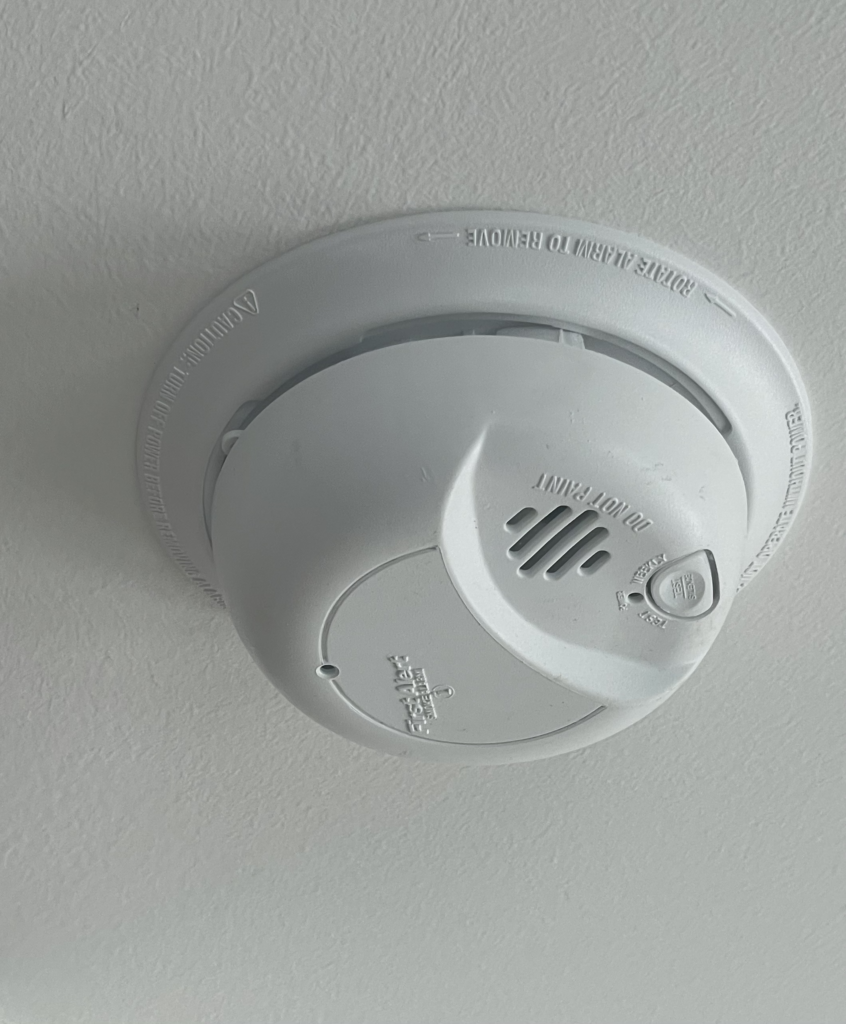Fire alarms and smoke detectors are one of the most essential tools when it comes to keeping people safe. Every home and business will be outfitted with some type of fire or smoke detectors. They are connected to some sort of alert system, either locally in the device or a central building alarm. By triggering alerts whenever there is evidence of a fire, fire and smoke detectors are the best way to protect yourself from a fire.
Whenever you have a fire emergency, evacuate the premises and immediately call 911.
There are 4 types of fire and smoke detectors. Smoke detectors look for smoke produced by a fire, while heat sensors look for hot spots in a building. Many businesses will feature a variety of detectors throughout the building.
4 Types of Fire and Smoke Detectors
Ionization
Ionization smoke detectors work by running an electrical current through two metal plates in the device. Smoke particles will interrupt the flow of the electrical current. When the current is disrupted, this triggers the alarm feature of the device. Fast burning fires produce a high volume of smoke. Ionization smoke detectors are great for identifying rapid burning fires.
Photoelectric
Operating on the same concept as ionization smoke detectors, photoelectric smoke detectors do the same thing, but with light. Smoke particles will interrupt and scatter the beam of light. Whenever the beam of light is disrupted, the alarm is triggered. There are less ways for photoelectric smoke detectors to trigger a false alarm, so they are known to be very reliable. Photoelectric detectors are ideal for identifying smaller fires that produce less smoke.
Combination – Ionization and Photoelectric
These smoke detectors combine both ionization and photoelectric fire detection methods. Having two separate forms of smoke detection makes this device extremely reliable. Fire professionals generally recommend these kinds due to their high levels of accuracy.
Heat Sensors
Differing from smoke detectors, heat detectors watch for fires through rapid rises in air temperature. Rapid increases in air temperature are often directly caused by a fire. However, heat sensors can trigger false alarms due to a variety of causes like abnormal humidity or dust levels. These devices are good at detecting slow-burning or smoldering fires. Heat sensors are best suited for storage facilities and warehouses that are unoccupied.
No matter what kind of fire detection system you have, make sure they are always in working order. Check the batteries on a regular basis and test to ensure they are working in your home. Businesses should regularly inspect their fire alarm and fire suppression systems. Having them serviced on a consistent basis will keep employees and customers safe.
Fire Protection from Code 4
Code 4 Fire Watch is a fire watch company founded by firefighters. We have over 30 years of experience in protecting businesses from fire emergencies. If your business is facing a fire alarm outage, call our experts today! We offer long- and short-term fire watch contracts and will protect your business at all hours of the day.

